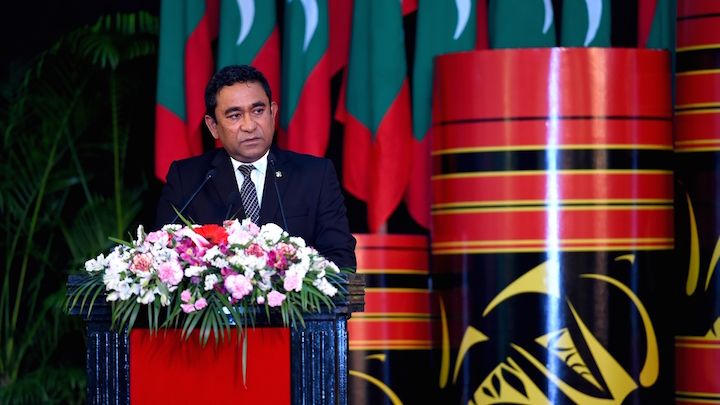President Yameen lashes out at ‘bipolar’ opposition
Accusing the MDP of calling for a tourism boycott and then expressing concern over the adverse impact on the tourism industry from the unprecedented 30-day nationwide state of emergency declared last week, Yameen said: “I think the psyche or thinking of these groups is characterised by bipolarism.”

11 Nov 2015, 09:00
President Abdulla Yameen lashed out at the main opposition Maldivian Democratic Party (MDP) in his Republic Day address last night, calling the party “bipolar” and “destructive.”
Yameen accused the MDP of expressing concern over the adverse impact on the tourism industry from the unprecedented 30-day nationwide state of emergency declared last week, after having called for a tourism boycott.
“I think the psyche or thinking of these groups are characterised by bipolarism. We don’t see them saying the same thing twice,” he said.
The press was barred from last night’s Republic Day function at the Dharubaaruge convention centre, which was broadcast through state media. It was the first public event Yameen has attended since the September 28 blast on his speedboat.
Become a member
Get full access to our archive and personalise your experience.
Already a member?
Discussion
No comments yet. Be the first to share your thoughts!
No comments yet. Be the first to join the conversation!
Join the Conversation
Sign in to share your thoughts under an alias and take part in the discussion. Independent journalism thrives on open, respectful debate — your voice matters.




